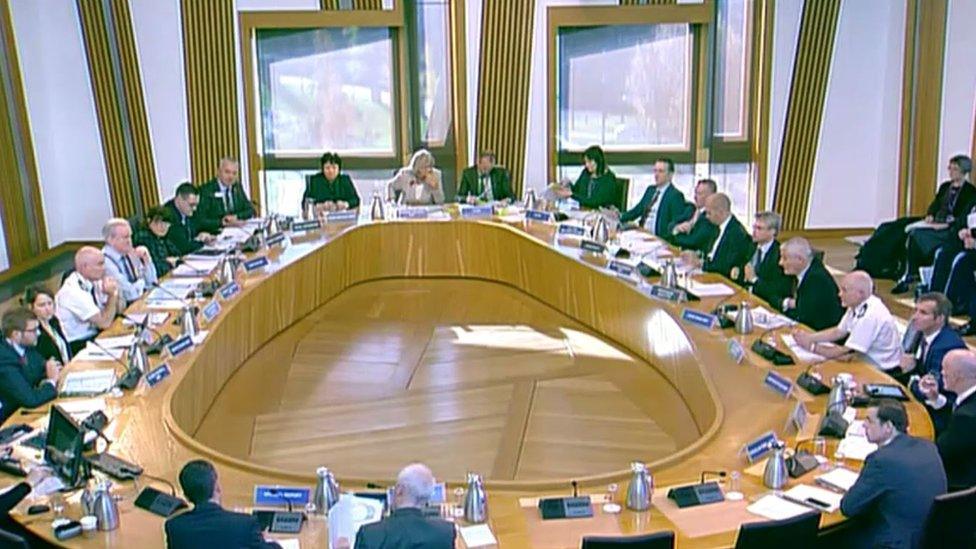Justice committee backs Scots railway policing merger
- Published
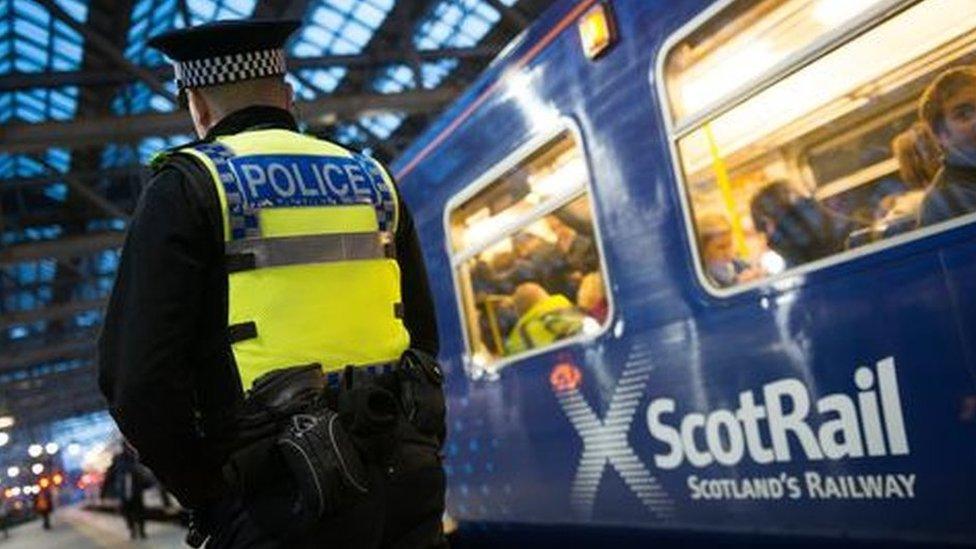
Merging the functions of BTP with Police Scotland has been a long-standing goal for the Scottish government
Holyrood's justice committee has backed the general principles of a bill to integrate railway policing north of the border into Police Scotland.
The Scottish government wants the national force to take over the role of the British Transport Police (BTP).
The majority of respondents to the committee opposed the integration, as did four MSPs, including the convener.
MSPs are due to vote on the legislation for the first time in the week beginning 8 May.
The Scottish government has long wanted to integrate railway policing services into the single national force, and tabled a bill to that end in December 2016.
The Railway Policing (Scotland) Bill, external would confer extra powers on the Scottish Police Authority and the Police Service of Scotland, but further legislation would be needed at Holyrood and Westminster to transfer staff, properties and cross-border policing functions.
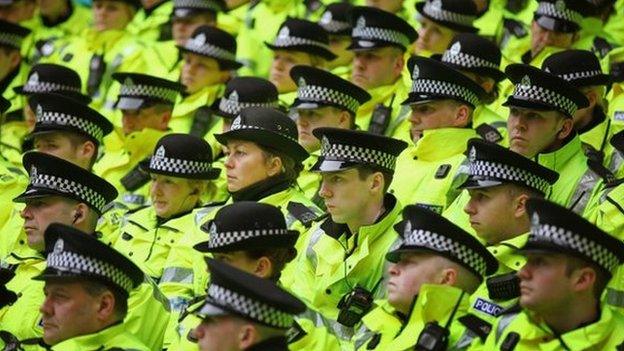
The move would see railway policing absorbed into Police Scotland
Witnesses including BTP chief constable Paul Crowther have warned that a merger could prove a "real challenge", saying it could cause a "significant outflow of expertise".
However Police Scotland have said a merger would be "complicated but not insurmountable".
The target date for integration is 1 April 2019.
The justice committee report noted there was "willingness to work collaboratively to meet" this "deadline", but said railway operators, unions, staff associations and passenger groups should be brought together as soon as possible "to ensure what any risks are identified and mitigated prior to integration".
'Seamless transfer'
It also said the committee heard that the costs of railway policing could increase as a result of integration, but that "it had not yet been determined what these costs might be or who should pay them".
The report highlighted that agreement of terms, conditions, benefits and pensions of BTP staff and officers had not yet been reached, saying that "resolving this issue is critical to achieving a seamless transfer".
Members also said it was "imperative" that forces were clear about their roles and responsibilities policing cross-border trains.
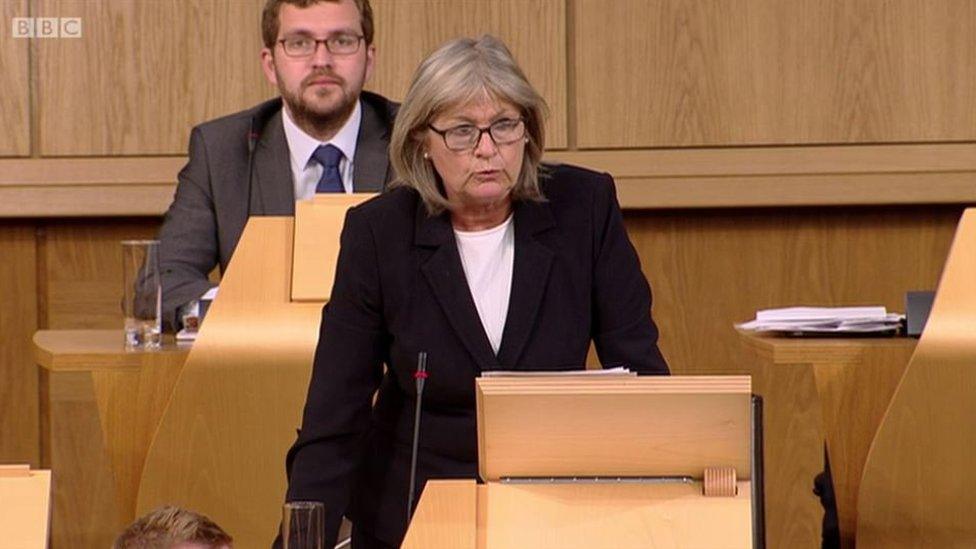
Margaret Mitchell said the committee did not arrive at a unanimous position on the bill's general principles
Of 11 justice committee members, seven backed the general principles of the legislation, with four dissenting.
They pointed out that BTP had proposed three options for devolving railway policing, noting concerns about the Scottish government's decision to only consult on one option - the option the force had outlined as "the most complex route".
Committee convener Margaret Mitchell, who was among those against the bill, said members had heard "a variety of opinions about the best approach for railway policing".
She said: "The committee did not arrive at a unanimous position on the bill's general principles, with some members backing an alternative approach.
"The committee report made a number of clear recommendations to ensure that the same level of service that the travelling public currently enjoys is maintained.
"These include the recommendations that strong procedures should be in place to manage cross-border issues, such as the powers of officers to carry out their duties as they travel between Scotland and England, and also that officers must be clear on operational issues such as the use of Tasers and the powers of arrest.
"All members agree that protecting the travelling public is of the utmost importance."
- Published7 March 2017
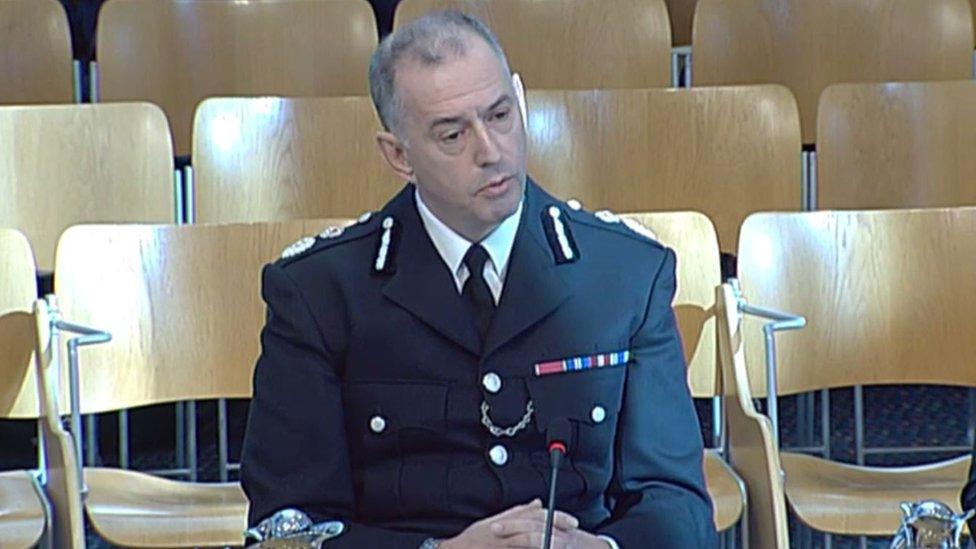
- Published1 November 2016
